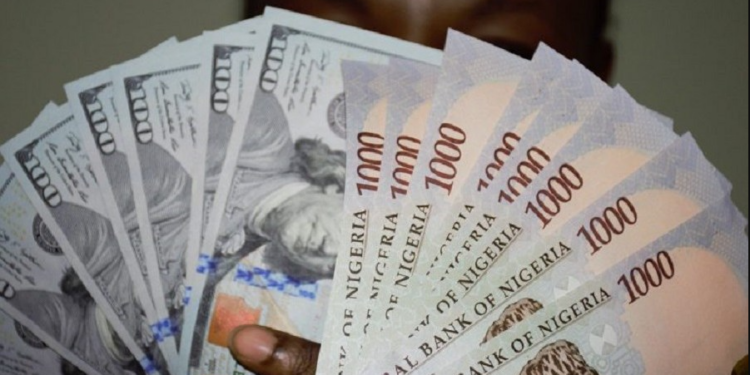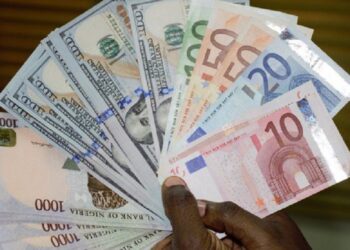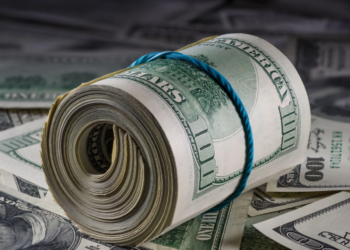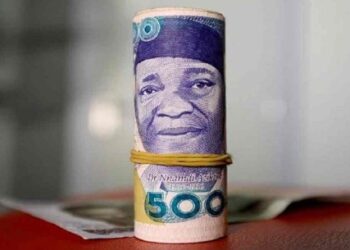The Nigerian currency was largely muted in the unofficial market on Wednesday, oscillating around N1,750/$ despite improved fundamentals in the country’s foreign exchange market.
The Nigerian Naira is still under significant selling pressure in the nation’s precarious foreign exchange market, even after a hawkish central bank recently raised interest rates.
In the unofficial market, price action shows that short sellers maintain firm control over the N1,725 support line.
Solid Fundamentals in Nigeria’s Foreign Exchange Market
The Naira is underperforming this year despite the CBN’s foreign exchange reserves hitting multi-month highs. For the first time in thirty-two months, the CBN’s reserves reached over $40 billion.
- The Nigerian currency was lukewarm in the unofficial market despite the recent successful Eurobond issuance of Nigeria’s $2.2 billion. The FX spot rate at the US dollar auction was oversubscribed to the tune of $9 billion.
- Nigeria’s first Eurobond sale in more than two years drew significant investor interest. The funds have $700 million and $1.05 billion invested in the 2031 and 2034 maturities, respectively. Coupon and re-offer yields for the 6-year and 10-year notes were 9.625 percent and 10.375 percent, respectively.
“This result demonstrates the resilience of the Nigerian credit and the increasing confidence of investors. It also shows that we have improved our liquidity position and are still able to access international markets to support the government’s financing needs,” stated Mr. Olayemi Cardoso, Governor of the Central Bank of Nigeria.
- The notes will be added to the UK Listing Authority’s official list and traded on the Nigerian Exchange Limited, the FMDQ Securities Exchange Limited, and the London Stock Exchange’s regulated market. “The proceeds from this Eurobond issuance will be used to support the government’s budgetary needs and finance the fiscal deficit in 2024,” the DMO stated.
- An FX electronic matching system was announced by the CBN to guarantee the restoration of the Naira’s actual value. At the Chartered Institute of Bankers’ 59th annual bankers’ dinner on Friday, the CBN chief stated, “We are introducing an electronic FX matching system, which has proven effective in other markets, to further enhance the functionality of the foreign exchange market.”
The automated foreign exchange platform is expected to make Nigeria’s currency trading on the official market more transparent.
Naira’s Outlook Mixed in the Long Term
Global rating firm Fitch Ratings has stated that despite multiple efforts by the Central Bank of Nigeria, the country’s foreign exchange market has not yet stabilized.
- The International Monetary Fund (IMF) reported that the Naira was exhibiting signs of stability due to recent interest rate hikes and CBN efforts to settle outstanding foreign exchange obligations, which somewhat contradicts Fitch’s opinion.
- The IMF attributed the apparent stabilization of the Naira to policy measures taken by Nigerian authorities, specifically the CBN’s efforts to settle past-due foreign exchange obligations, in its Global Financial Stability Report.
According to the IMF’s report, “Policy actions by local authorities have also resulted in positive developments; for example, in Nigeria, rate hikes and the clearing of overdue domestic central bank foreign exchange obligations have helped the Naira show more signs of stability.”
U.S. Dollar Index Shows Stability
The haven currency showed stability in the global currency market as traders weighed the likelihood of a Federal Reserve interest rate cut this month.
- The Euro faced headwinds as French lawmakers prepared to vote on motions of no-confidence later in the day, which are almost guaranteed to topple the government. The Euro remained above its recent two-year low.
- The U.S. dollar index, which measures the currency against six major counterparts, including the yen and the euro, added about 10 basis points to settle at 106.39 index points in the early hours of Wednesday.
- Although the Federal Reserve did not provide clear instructions on what they plan to do following their next policy meeting in two weeks, job openings increased slightly in October while layoffs decreased, supporting the dollar’s strength.
The U.S. payrolls report, due later today, will provide more information on the situation. Traders are waiting for important monthly payroll data on Friday for additional insights on the rate outlook.





















